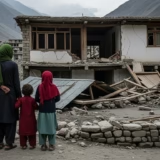Pakistan’s political stage is set for another major legal showdown. Key opposition leaders from Pakistan Tehreek-e-Insaf (PTI), the party of jailed former Prime Minister Imran Khan, have been removed from parliament by the Election Commission of Pakistan (ECP).
They are now fighting back, taking their case to the high court to challenge the disqualification and win back their seats. The move is the latest flashpoint in a long-running political conflict that has seen the PTI face mass arrests, numerous court cases, and the loss of its electoral symbol.
Why Were the Lawmakers Disqualified?
On August 5, 2025, the Election Commission of Pakistan (ECP) officially unseated nine senior PTI lawmakers, including the Leader of the Opposition in the National Assembly, Omar Ayub Khan, and the Leader of the Opposition in the Senate, Shibli Faraz.
The ECP’s action was a direct result of a July 31 verdict from an Anti-Terrorism Court (ATC) in Faisalabad. The court had sentenced over 100 PTI leaders and workers to 10-year prison terms for their alleged roles in the violent protests of May 9, 2023.
To remove the lawmakers, the ECP used Article 63(1)(h) of the Constitution, which disqualifies anyone from parliament who has been convicted of a crime involving “moral turpitude” and sentenced to at least two years in prison.
PTI’s Legal Challenge: A Question of Finality
The disqualified lawmakers have filed a petition in the Peshawar High Court (PHC) to overturn the ECP’s decision. Their entire case rests on a critical legal question: when is a conviction considered final?
The PTI’s legal team argues that the ECP acted prematurely. According to a landmark 2018 Supreme Court ruling, a disqualification under Article 63(1)(h) can only be applied once a conviction has achieved legal finality. A verdict from a trial court, like the ATC, is not final as long as an appeal is pending in a higher court.
Since the lawmakers are appealing the ATC verdict, they argue their conviction is not final. Therefore, they contend the ECP overstepped its authority and had no legal grounds to remove them from parliament while their case is still under judicial review.
Conclusion: An Uncertain Future
The disqualified PTI lawmakers are officially out of parliament, but their political careers now rest in the hands of the Peshawar High Court. This case is more than a simple legal dispute; it is a critical moment in the ongoing power struggle in Pakistan.
The court’s decision on whether a conviction must be “final” before disqualification will set a major precedent, either validating the ECP’s hardline stance or handing a significant victory to the country’s embattled opposition.










